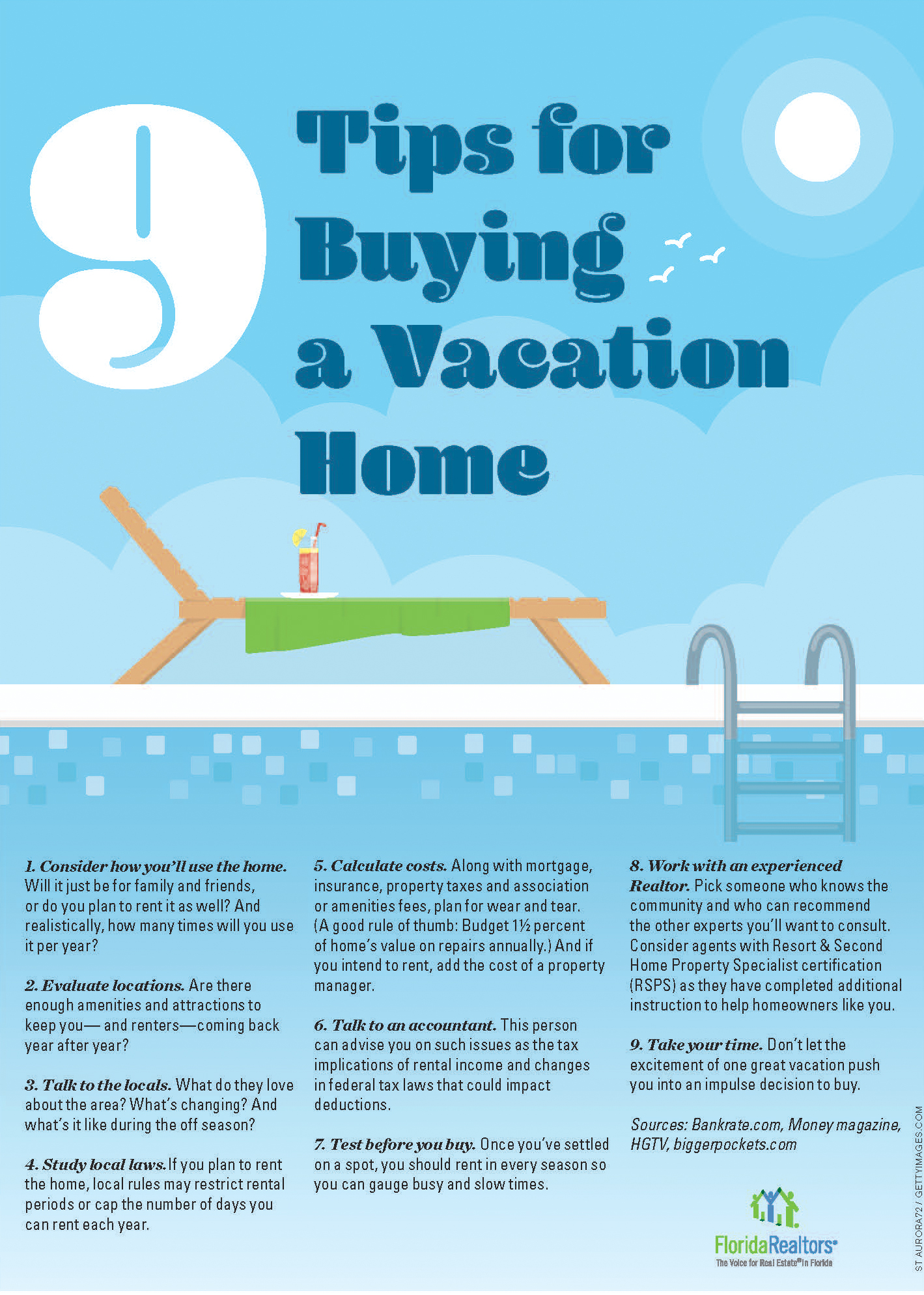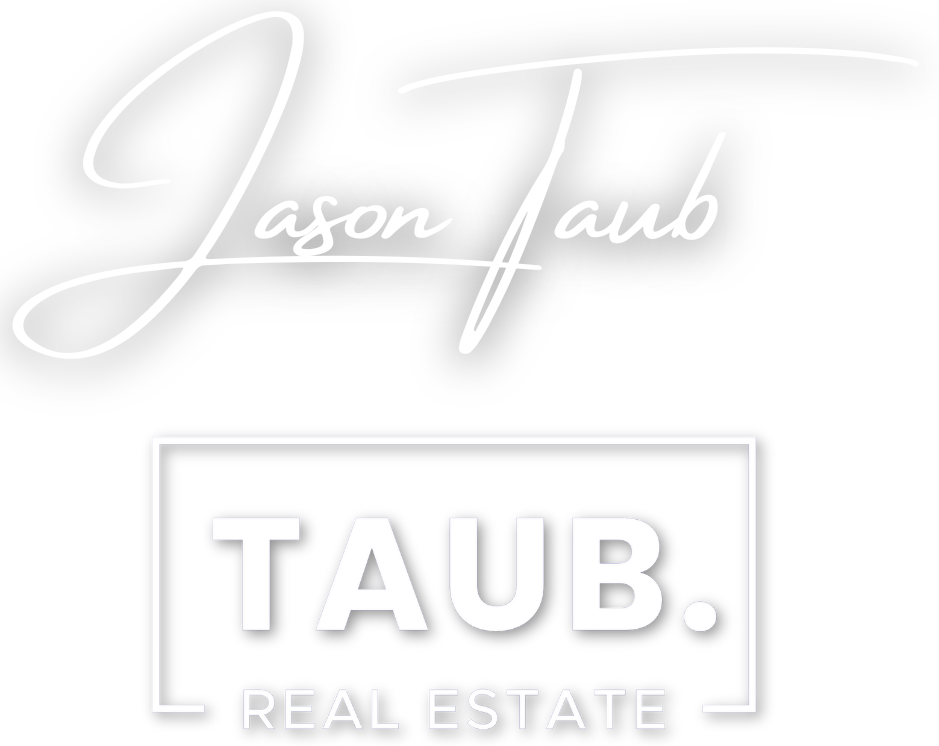Text Version:
1. Consider how you’ll use the home. Will it just be for family and friends, or do you plan to rent it as well? And realistically, how many times will you use it per year?
2. Evaluate locations. Are there enough amenities and attractions to keep you and renters coming back year after year?
3. Talk to the locals. What do they love about the area? What’s changing? And what’s it like during the off season?
4. Study local laws if you plan to rent the home. Local rules may restrict rental periods or cap the number of times you can rent each year.
5. Calculate costs. Along with mortgage, insurance, property taxes and association or amenities fees, plan for wear and tear. (A good rule of thumb: Budget 1?% of home’s value on repairs annually.) And if you intend to rent, add the cost of a property manager.
6. Talk to an accountant. This person can advise you on such issues as the tax implications of rental income and changes in Federal tax laws that could impact deductions.
7. Test before you buy. Ideally once you’ve settled on a spot you should rent in every season so you can gauge busy and slow times.
8. Work with an experienced Realtor. Pick someone who knows the community and who can recommend the other experts you’ll want to consult. Especially consider agents with Resort & Second Home Property Specialist certification (RSPS) as they have completed additional instruction to help homeowners like you.
9. Take your time. Don’t let the excitement of one great vacation push you into an impulse decision to buy.
Sources: Bankrate.com, Money magazine, HGTV, biggerpockets.com



